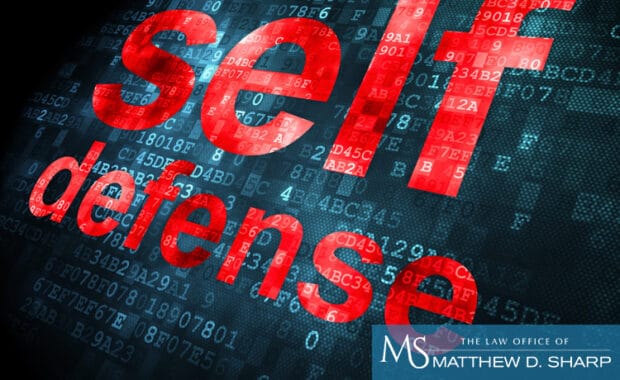
It’s unfortunately all too common to hear stories about current and former intimate partners posting revenge porn on the internet. These acts, while socially damaging and ethically reprehensible, can also carry severe legal consequences for the offender.
If you or a loved one is facing charges related to revenge porn, it’s crucial to seek the counsel of an experienced criminal defense attorney immediately to understand your rights, potential defenses, and the complexities of the laws surrounding this digital-age crime.
Are you facing a revenge porn charge in Texas?
What is revenge porn?
Revenge porn, also known as “image-based sexual abuse,” is the unauthorized distribution of intimate photos or videos of an individual without their consent, often by a current or former romantic partner. The primary intent is usually to embarrass, harass or publicly shame the person depicted.
Is revenge porn a crime/illegal?
Yes, in Texas, as in many other states, revenge porn is considered a criminal offense. The state has laws that specifically make it illegal to distribute intimate or sexually explicit images of another person without their consent. These laws are aimed at protecting individuals from the unauthorized dissemination of such private material.
Those found guilty of this act can face harsh penalties, including fines and potential jail time.
What are the revenge porn laws in Texas?
If you’re facing revenge porn charges in Texas, it’s crucial to understand the laws surrounding this crime. Under Texas Penal Code Section 21.16, an individual breaks the law when:
- They fail to obtain the “effective consent” of the person depicted or intentionally disclose the visual material that depicts another individual’s intimate parts (including naked genitalia, the female nipple, the pubic area, the buttocks or the anus), whether through exposure or when engaged in a sexual act.
- They obtain or create the visual material in a circumstance in which the person depicted reasonably believes the material would be kept private.
- The disclosure of the material reveals the depicted individual’s identity through any means, including a third party’s response.
- They intentionally make a threat to disclose the visual materials in exchange for not following through with the disclosure.
- They promote such visual materials via an internet website or via another publication forum (owned and operated by the actor).
Additionally, the law says these actions are illegal even if the depicted person consented to create or created the visual material or voluntarily transmitted or gave the materials to the actor.
10 Surprising Crimes That Could Make You a Sex Offender in Texas
These 10 surprising crimes could land you on Texas’s sex offender registry for the rest of your life.
What are the penalties for revenge porn in Texas?
In a word, the consequences of revenge porn in Texas are fierce. The law considers the sharing, distributing or publishing of intimate photos or videos without the consent of the person depicted in them a loss of privacy, and if found guilty of breaking the law, the defendant faces a state jail felony, with punishments that can include:
- A minimum of 180 days and a maximum of 2 years in jail
- Fines up to $10,000
What’s more, after serving time, you’ll have a criminal record that could impact you for the rest of your life, so it’s crucial to consult an experienced sex crime defense attorney to discuss possible legal defenses.
What’s the Difference Between Felonies and Misdemeanors in Texas?
Learn how felonies and misdemeanors are classified and punished in Texas.
Revenge porn civil liability in the state of Texas
Not only is revenge porn a crime, but it’s also possible for the defendant to face financial responsibility if the plaintiff creates a civil cause of action. In other words, the alleged victim of revenge porn materials can sue the individual who posted the images or videos—in addition to holding that individual criminally responsible for the behavior.
Juries often award significant monetary damages to defendants in civil revenge porn lawsuits. In fact, recently, a Harris County jury voted to award a woman a half million dollars for emotional distress caused by her former boyfriend’s share of an intimate Skype interlude.
Under Texas law, defendants may be liable for the following:
- Damages of $1,000 for each willful-intentional violation
- Damages of $500 for each violation (not deemed willful or intentional)
- Mental anguish damages
- Court costs plus reasonable attorney’s fees
Because the stakes in revenge porn cases are so high, make sure you understand the charges against you and take all necessary steps to protect your rights.
Texas woman awarded 1.2 million in revenge porn case
In August 2023, a Texas woman identified by her initials, D.L., was awarded $1.2 billion in a landmark revenge porn case against her former boyfriend. The lawsuit claimed he posted intimate images of D.L. on social media and adult websites to intentionally embarrass her and hacked into her mother’s home security system to spy on her after their break-up.
The massive settlement will hopefully raise awareness of the issue and emphasize the importance of understanding your legal protections.
Putting an end to revenge porn in Texas
In 2015, Texas joined other states in passing revenge porn laws. However, because revenge porn knows no state boundaries on the internet, groups like the Cyber Civil Rights Initiative want federal laws to protect women.
The American Civil Liberties Union of Texas argues that laws must be clear to avoid creating “unintended victims.” For instance, if the law doesn’t clarify that images are shared with a lack of consent and the intent to harass the victim, it is easier to criminalize the distribution, sharing, or promotion of explicit images.
Consequences of sexting in Texas
Sexting involves sending intimate images or photographs through an electronic device like a tablet or smartphone. Before 2011, sexting between 2 or more minors was viewed as the promotion of child pornography. When adults were involved, it was considered a potential felony offense that could mean years in prison.
The Texas Legislature passed Senate Bill 407 in 2011, which made the sending of sexually explicit images of minor individuals a misdemeanor:
- A first offense is a Class C misdemeanor, punishable by a $500 fine.
- A second offense is punishable by up to 6 months in jail and a $2,000 fine.
- If sexually explicit messages were transmitted with the intention to harass, harm, embarrass or abuse another party, the first-time offender faces a possible Class B misdemeanor.
- If the offender forwarded sexually explicit material or messages to another party, they may be charged with a Class B misdemeanor as well.
Individuals less than 17 years old may not face prosecution for sexting if the images transmitted were of the sender and recipient, the two individuals were in an intimate dating relationship, and the two individuals were within a 2-year age difference (even when one is older than 18 years of age).
Courts require the minors’ parents to appear with their children in court when sexting charges are presented. The court may require the teen(s) and/or their parents to attend educational programs concerning sexting dangers.
Contact an experienced criminal defense attorney in Houston
If you or your teenage child is facing a sexting or revenge porn charge, you need a knowledgeable criminal defense attorney by your side. At The Law Office of Matthew D. Sharp, we will work aggressively to protect your rights. Contact us today to schedule a free initial case evaluation.









